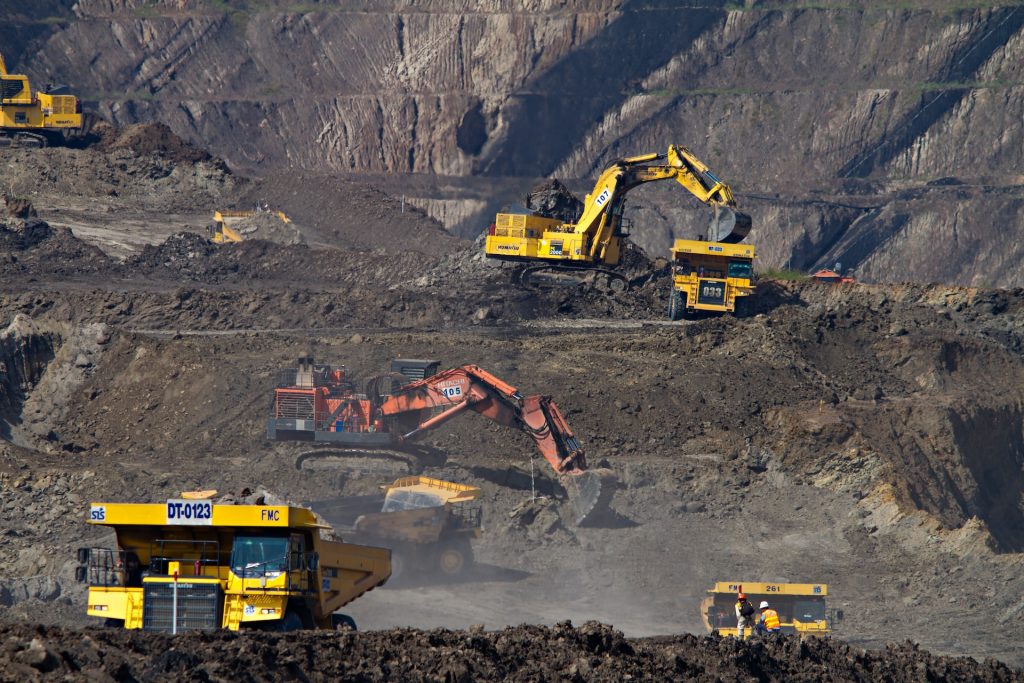A country’s economic stability plays a crucial role in its development. Without a solid foundation, a country’s economy cannot provide for the needs of its citizens. This part is where the basic industries come in.
What is a Basic and Non-basic Industry?
The basic industry provides the essential goods and services needed for a country to function. They include sectors that serve as the backbone of any economy and are crucial to a country’s development.
Non-basic industries, on the other hand, are businesses that provide non-essential goods and services. They include tourism, retail and entertainment. While these industries are not necessary for a country to function, they can contribute to its economy and provide jobs for its citizens.
What Do Basic Industries Do?
These industries are also known as primary or extractive industries, as they extract and process raw materials needed for manufacturing other products. Typically, they provide a starting path that other industries need to grow and thrive.
According to data from the United Nations, China is the world’s leading producer of basic industries, followed by the United States and Japan. These three countries make up almost half of the world’s total output of basic industries.
What Characterizes Basic Industries?

Although there’s significant variation among primary industries, most of them share some general characteristics
Raw Materials
Extraction and production of raw materials are at the heart of primary industries. That includes everything from mining and logging to farming and fishing.
Semi-finished Products
Aside from raw materials, these industries also produce semi-finished products. These materials have been processed but are not yet ready to be used in manufacturing. For example, crude oil must be refined before making gasoline.
Man-made Products
Not all primary industries produce natural resources. Some, like the construction industry, create man-made products. These products are essential for a country’s infrastructure and development. Some common examples of man-made products include roads, bridges and buildings.
Environmental Impact
Because these industries rely heavily on natural resources, they can significantly impact the environment. That includes air and water pollution, as well as deforestation. But with the proper regulations in place, the negative impact can be minimized.
Why is the Basic Industry Needed?
Unlike other industries, primary industries are essential for a variety of reasons. However, their most important contribution is providing business activities that create employment and generate income. These movements help to drive a country’s financial flow and provide the funds needed to support other sectors. As a result, it leads to a higher level of prosperity.
Another importance of basic industry involves import and export. Most countries rely on the export of primary goods to earn foreign currency. This money gets into the hands of businesses and households and can be used to purchase other products or services. It produces a positive economic impact on the country and helps improve its citizens’ quality of life.
These industries are also key players in times of crisis. During an economic recession, demand for non-essential goods and services plummets. However, the need for basic goods and services remains the same. Thus, providing stability and helping to prevent a complete collapse of the economy. In short, without the primary industries, a country’s development would stall.
What are Some Basic Industries?

To further understand what makes up the primary sector, here are some examples of basic industries that play a role in a country’s development:
Agriculture
The agricultural industry is responsible for producing the essential food crops and livestock a country needs. It is one of the most vital sectors, providing the food necessary to sustain a population. Especially in the recent health crisis, the agricultural sector has proved to be one of the most thriving sectors in a pandemic.
Mining
The mining industry is in charge of extracting minerals and other natural resources from the earth. These raw materials then get used in manufacturing a variety of products. The sector is also a significant source of employment, providing jobs for millions of people worldwide.
Fishing
Marine life forms an essential part of the human diet. The fishing industry provides seafood to every household’s dinner tables. It is also one of the oldest industries in the world, with evidence of early humans engaging in this activity dating back to at least 40,000 years ago.
Oil and Gas
The discovery and production of oil and gas are the primary activities of this sector. The oil and gas industry significantly contributes to a country’s economy, providing energy to power homes and businesses. It also generates revenue through exports and provides jobs for many people.
Forestry
The forestry industry is responsible for the management and utilization of forests. It provides timber used in construction, paper products, and furniture. The sector also helps to preserve the environment by planting new trees and preventing deforestation.
Steel
The steel industry is responsible for the production of this essential metal. Steel is critical in many industries, such as construction, automotive and machinery. It is also helpful in making various consumer products, such as appliances and utensils.
Chemical
The chemical industry produces the chemicals necessary for various manufacturing processes. It is also responsible for developing and producing a wide range of products, such as cosmetics, cleaning products and pharmaceuticals.
Pulp and Paper
The pulp and paper industry produces the raw materials used in making paper products, such as magazines, newspapers and packaging. It is also responsible for producing wood pulp, which is used in making various products, such as clothing and building materials.
What Makes the Basic Industry Function?

Several factors are needed for the basic industry to function correctly. Below are some of the most important ones that keep the industries running:
Natural Resources
Basic industry is heavily dependent on natural resources. These include land, water, minerals, forests and climate. Without these resources, it would be impossible to carry out the activities of businesses that belong to the basic industry.
Capital
Processing and production require significant money to set up and maintain. Basic industries need heavy machinery and equipment to extract and process raw materials.
Labor
A large workforce is required to carry out the activities of the sector. That includes everything from farming and fishing to mining and logging. Without these workers, the primary sector would come to a standstill.
Skills and Technology
Basic industries require specific skills and technology to function correctly. That includes farming equipment and techniques, mining machinery and fishing boats. The industry also needs to constantly update its technology to keep up with changes in the market.
Transport
That means transporting raw materials to processing plants and finished products to marketplaces. The industry requires an efficient transport system to provide on-time delivery. That includes a network of roads, railways and waterways.
What Companies Belong to the Basic Industry?
Glencore International
This company is one of the world’s largest mining firms. Being the 17th largest company in the world, it is no surprise that Glencore is a part of the primary sector. The company produces a variety of minerals and metals, including copper, zinc, and lead. It also has operations in agriculture, growing wheat, corn and soybeans.
Cargill
One of the biggest agricultural companies in the world, Cargill produces a wide range of food products. That includes everything from meat and poultry to eggs and dairy. It thrives in the primary sector by conducting trades in various commodities, such as grains and oilseeds.
Unilever
This company is one of the largest consumer goods firms in the world. It owns many well-known brands, such as Dove soap and Lipton tea. Unilever also has a significant presence in the primary sector through its subsidiary, Bestfoods. This company produces various food products, such as soups and sauces.
Ecolab
Ecolab is a leading provider of water, hygiene, and energy technologies. It serves a variety of industries, including food and beverage, healthcare and hospitality. Ecolab also has a strong presence in the basic industry, aiding the agricultural and mining industries.
Southern Copper
With operations in Peru, Mexico and Chile, Southern Copper is one of the largest copper producers in the world. The company also produces other metals, such as zinc and molybdenum. It is a significant player in the primary sector, contributing to making many essential goods.
BHP Billiton
This company is one of the biggest mining firms in the world. It produces a variety of minerals, including iron ore, coal, and aluminum. BHP Billiton also has operations in oil and gas, making it a well-rounded primary sector company.
The basic industry is vital to the world economy. It provides the raw materials and resources necessary for other industries to function. Without it, the world would come to a pause. By understanding what it does, you can appreciate its value in everyday life and maybe even provide you with ideas for a business.
